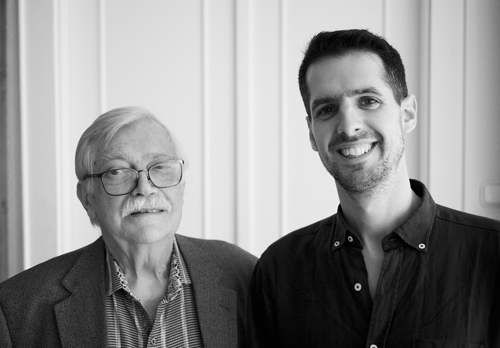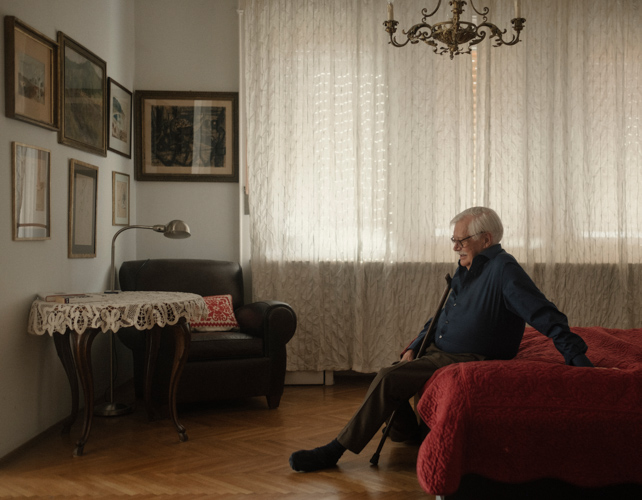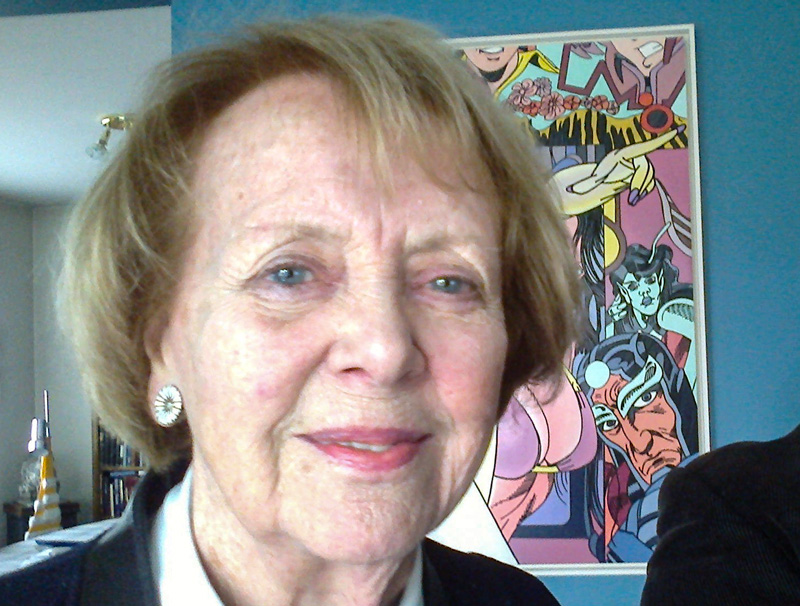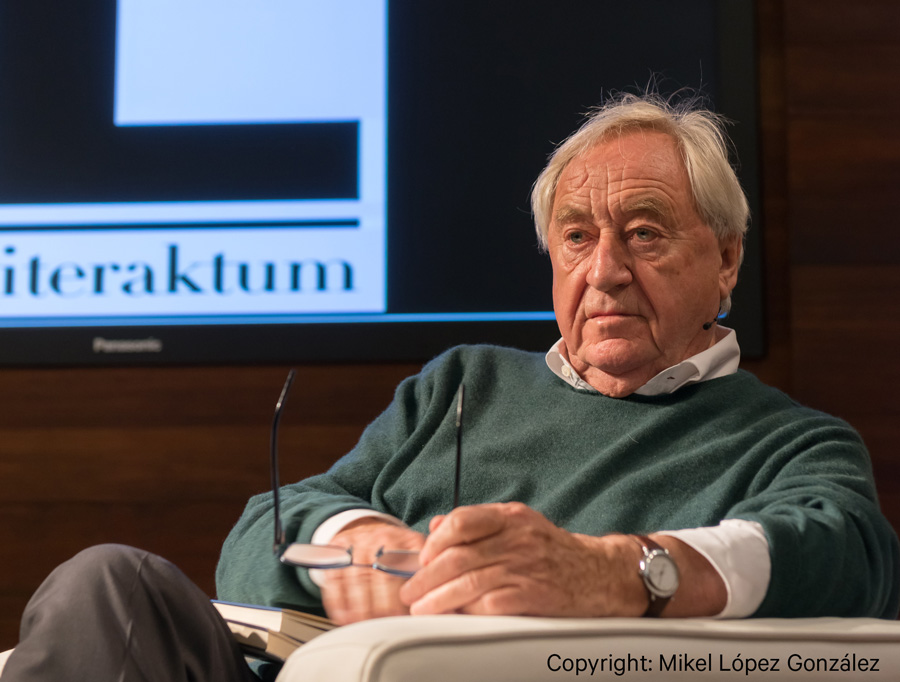Iván Szelényi is one of Hungary’s most famous sociologist. Among his best known publications is The Intellectuals on the Road to Class Power (1979), co-written with the novelist György Konrád, which described the rise and the social role of the intellectuals as a class and their relation to the ruling political elite, and was interpreted as a direct criticism of the Communist regime under János Kádár. Following its publication Szelényi was arrested, forced to leave the country, and later stripped of his Hungarian citizenship.
In exile, he continued publish important works on urban sociology, structural deficiencies of capitalist and socialist societies, and patterns of social exclusion in post-socialist Europe, holding positions at City University of New York, at UCLA, or Yale University, where he chaired the Department of Sociology and Political Sciences. Szelényi has also written about nationhood, rent-seeking and illiberal capitalism.
After 1989 Szelényi’s Hungarian citizenship was reinstated, and in 2006 he received the Széchenyi Prize, Hungary’s highest state prize for scientific work. Szelényi is currently living in Budapest, the city that also made him an Honorary Citizen in 2008.
In their conversation in March 2019, Iván Szelényi told Kristóf Szombati about how he missed out on the 1956 revolutionary protests by watching a bad film in the movies, why he sees himself foremost as intellectual interested in the what is, but not the what should be, and his relationship with regards Beethoven’s Ninth symphony.

Iván Szelényi was interviewed by the sociologist and political scientist Kristóf Szombati who currently holds a post-doc position at the Max Planck Institute for Social Anthropology in Halle, Germany. Szombati has also been active in politics as a founding member of Hungary’s Green party, LMP.
Interview Highlights
On childhood
Politically, one can actually place [my father] on the far right. But he was a very good person. That is why I say of him that he was a Nazi with the soul of a dove. His antisemitism was very interesting. He spoke badly of Jews, and would remark if someone was a Jew or not. He propagated a lot of brainless biological nonsense about ‘races’, even though he knew that these do not actually exist. At the same time, he never had a personal problem with such people. During my whole childhood, most of my best friends were, by chance, Jews. He always welcomed them in a most friendly manner, and never let them feel that they were Jews. He was a principled anti-Semite. So it was not by chance that he was still a member of the Arrow Cross party in 1945 [Hungarian fascist organization that controlled the Hungarian government from October 1944 to April 1945 during World War]. It is also not by chance that, in 1945, when he was summoned for certification, he was held at the police station for one or two hours, but his colleagues [who were asked to certify whether he was a fascist or not] were of the opinion that ‘Uncle Guszti’ was a good guy. [….] It is interesting how a person who never harmed anyone could become a committed Nazi.
Political awareness
[After 1956], I was bull-headed and decided that I would not join the ‘KISZ’ (Hungarian Young Communists’ League), which had just been formed. One of the founding members was Jankó [János] Avar, who later became a journalist and Washington correspondent with Népszabadság [a Hungarian newspaper and Communist Party organ until 1989]. Before 23 October 1956 we got on quite well with Jankó. We almost became friends. That changed after the 4th of November, because I could not understand why so many people had to be killed, why there had to be shootings. He did not like that. And also, I did not join the ‘KISZ’, which meant that I was one of the very few at the university who did not join it. We sometimes had to report for a physical examination for the military, and one time an officer asked me whether I was a member. I said no, and he asked why not. ‘Because it is a young communist league, and I am not a communist.’, I said. He answered: ‘Oh, don’t worry, it is only communist in name.’ I answered: ‘But it is a part of the name, so I will not become a member.’
So when I left the university my fellow students wrote a very witty [laughs] résumé about me. I think Jankó Avar played a very important role in this because it was so witty that only he could have written it. I was an excellent student. In my cohort consisting of 200 or 300 students I was among the top five students. Nevertheless, they wrote a résumé in which they suggested that I should not get a job because I was not a member of the KISZ. At that time, we had two friends with whom we played bridge. In 1960 bridge was a relic of bourgeois society, so they held that against me. And then there were these witty things in the résumé. It simply must have been Jankó. He said: ‘Szelényi is from the last century, a skeleton left over from the last century.’ So because of this no one wanted to offer me any type of position after graduation.
On the Baltic-European relations
Fine, we don’t bring as much money to the table as others, our payments are smaller. But as a citizen of the European Union, I feel that if only they were honest and would truly understand that it is a rainbow after all and that we will lose one of its colours here. The same way that the animals are dying out, pandas are dying. If you don’t give some extra money to that panda, it will die out. And if a panda becomes extinct, then so can a Latvian, Lithuanian and Estonian. Even so, I stand for the European Union as the only possible way for our survival.
The origins of The Intellectuals on the Road to Class Power
The first thought that led me to write the book had to do with an ongoing conversation I had been having Pista [István] Bibó [a Hungarian political scientist and sociologist who became a role model for dissident intellectuals in the late communist era]. When Pista was granted amnesty and freed from prison in 1963, they also employed him in the KSH library [where I worked]. […] We became friends and talked a lot. Once he said to me, ‘You know, this regime’s biggest lie is that it is a dictatorship of the proletariat. If anything, it is a dictatorship of the intelligentsia.’ Bibó, the populist, said that. I didn’t understand a word of it, but this sentence has remained in my head to this day.
[I wrote the book because] I am an intellectual. I want to be heard. If I whisper, they won’t hear me, and apart from that I feel obliged to call things by their name. I want to find the most fitting wording. […] The motive for the book was not political – many misunderstood it as a reform proposal. I still hear people say, ‘That was such a good idea. If only the dominant class had been formed by intellectuals [laughs], all would have turned out well.’ People still come up today to say this. So, no, it was not a reform plan. We did not want to improve socialism. At least I did not want to reform it. What I wanted to do was describe it as precisely as possible. And from this point of view, post-Stalinist state socialism’ had a really important attribute. Namely, that it tried to incorporate the intelligentsia into the exercise of power and the intelligentsia was prone to responding positively to this.
On illiberal regimes
Yes,there is certainly some sort of movement from within [the illiberal regime in Hungary] to strengthen the national bourgeoisie, that is right. But I don’t think there is a tendency for the national bourgeoisie to replace multinational globalised capital. There is, rather, a new distribution [of resources] within the national bourgeoisie. It is very important for the illiberal regime to create an order which incorporates sufficiently large social strata, including capital-holders. But not only capital-holders, but also intellectuals who have a financial interest in the perpetuation of the illiberal system. That is why I do not like it when illiberal regimes are portrayed as tyrannical and dictatorial. The situation is much more complicated, as in order to legitimise themselves, these regimes have created and maintained clientelist networks.
And capital is very important in this regard. This includes big capital, people such as Lőrinc Mészáros [a businessman with ties to the current Hungarian regime], for example, and also small businesses, such as the owners of the tobacco kiosks [who recently benefited from a state-mandated redistribution of tobacco selling licences]. Clientelism is also what the land reform was about. This created large estates – but even the largest were not so large, a few hundred hectares – and their owners became the regime’s clients because they received land previously held by the state for a few Fillér [former small unit of the Forint]. So that is very important. [….] In the top ten to twenty percent of society there is a stratum that gets on quite well within the illiberal regime. How they vote, I cannot say [but] from this perspective, the opposition is quite mistaken when they say, ‘Well, only those stupid and uneducated villagers vote for Fidesz.’
The European idea
Szombati: Are you personally disappointed in the EU?
Szelényi: I wouldn’t say that. I never had any concrete expectations of the EU and of what it will do. We have been saying for 20 years that there is a democracy deficit. Political scientists who know about these things tell me that. When the EU was born, we knew that there would be problems. Unfortunately, we see the incapacity of the EU to solve them. To that extent, I was not wrong. I am sorry to have to say something that many people will not like. One great moment for Europe and the EU was September 2015, when Angela Merkel said that Germany would take in the refugees. That was the victory of the European idea. Once I was asked if I sing along when the European anthem is played. I do not, but I spent last New Year’s eve, as I often do, in Vienna. When they played the Ninth Symphony, I almost burst into tears. The text begins with the request to stop the language of hate and to talk about something else. About how we are a human community. Poor Beethoven – if he could now see what has become of it.



